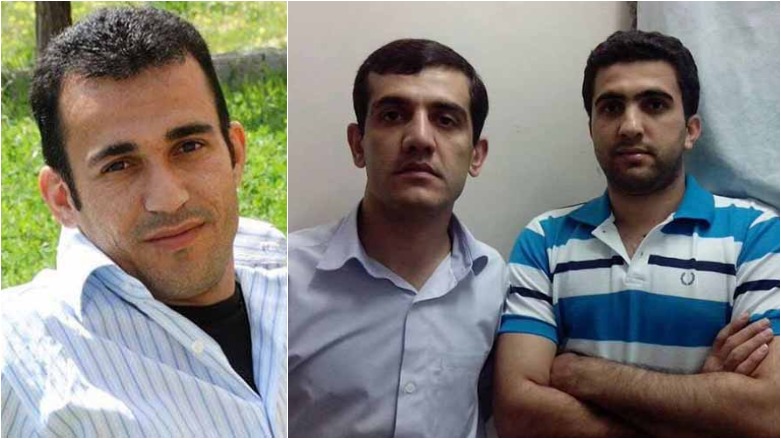Iran executes activist Ramin Hussein Panahi; reportedly two others

ERBIL (Kurdistan 24) – After months of international condemnation of an Iranian death sentence given to Kurdish activist Ramin Hussein Panahi, he was executed on Saturday, according to human rights groups and other sources. There are conflicting reports as to whether or not two others also previously given the same sentence in Iran were put to death as well.
“Ramin Hussein Panahi was executed,” Ramin’s brother, Amjad Hussein Panahi tweeted on his official Twitter account on Saturday.
During a live interview with Kurdistan 24 on Saturday, Amjad called on the international community to condemn the execution.
Panahi's conviction was based on claims he was a member of the armed Kurdish opposition group Komala, however, no evidence was presented that linked him to other crimes he was charged with, which include murder. In April, Iran’s Supreme Court approved the sentence.
The Kurdish political prisoner was executed in Raja’i Shahr prison in Karaj, Hengaw, an independent Kurdish right group reported.
The group also mentioned that Panahi was executed along with fellow Kurdish activists Loghman Moradi and Zaniar Moradi, but their family told another Iranian human rights group that they "have not officially been informed of their execution and they believe their sons are alive and are in custody of Iran intelligence ministry."
By mid-afternoon, the Iranian Fars news agency reported the execution of three persons for "terrorist acts in the west of the country," on Saturday. Loghman Moradi and Zaniar Moradi were named, but the third was not.
According to Amnesty International, the two cousins claim they were tortured into “confessing” to the 2009 murder of the son of a senior cleric in Marivan, Kurdistan Province, and sentenced to death in December 2010.
They were also charged with participating in armed activities with Komala, the same group Panahi is accused of having membership in.
In recent months, international human rights organizations, UN human rights experts, and activists repeatedly called for Panahi's death sentence to be annulled in light of legal concerns about the handling of his case, including reports that he had been tortured, denied access to a lawyer and medical care, and that he had been held incommunicado.
Panahi appeared in a short video on Monday. In a hoarse voice, he thanked the people of Kurdistan and Iran, in general, for their staunch support of him.
“I would like to deny charges claiming I am a terrorist,” he added.
Editing by John J. Catherine
